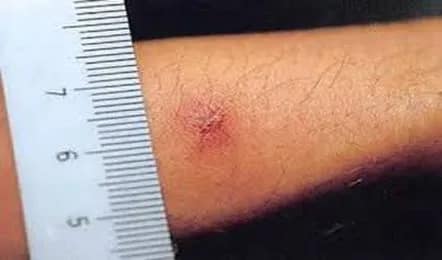Scrub typhus is a bacterial infection that is currently spreading in Tamil Nadu. Districts such as Chennai, Kanchipuram, Tirupattur, Tiruvallur, Chengalpattu, Ranipet, and Vellore have reported numerous cases. The Public Health Department has issued an alert, urging immediate measures to control the outbreak.
What is Scrub Typhus?
Scrub typhus is caused by the bacterium Orientia tsutsugamushi. This bacterium is transmitted through bites from infected larval mites, commonly referred to as chiggers. These mites are typically found in bushy and forested areas. The disease can affect individuals of all ages, especially those who work or reside in densely vegetated environments.
Why Are Cases Increasing?
The increase in scrub typhus cases in Tamil Nadu is likely linked to environmental and climatic factors. These factors create optimal conditions for chigger populations, resulting in higher transmission rates. Changes in land use and increased human activity in rural areas may also contribute to the rise in cases.
Symptoms of Scrub Typhus
Common symptoms of scrub typhus include fever, headache, fatigue, and rashes. In severe instances, the infection can lead to complications such as pneumonitis, meningitis, heart failure, and organ failure. Early recognition of symptoms is crucial for effective treatment.
Diagnosis and Treatment
Early detection and treatment of scrub typhus are vital. Diagnosis can be confirmed through ELISA blood tests and molecular testing. Treatment typically involves antibiotics such as azithromycin and doxycycline. Hospitalisation may be required for severe cases, necessitating advanced medical care.
Who Is at Risk?
Certain groups are more susceptible to scrub typhus. These include farmers and outdoor workers, residents of areas with dense vegetation, pregnant women, and individuals with weakened immune systems. Awareness of risk factors is essential for prevention.
Preventive Precautions
Health officials recommend several preventive measures to mitigate the risk of scrub typhus. Wearing protective clothing, such as long-sleeved shirts and pants, can reduce exposure to chiggers. The use of insect repellents containing DEET or permethrin is advised when spending time outdoors. Avoiding high-risk areas and maintaining hygiene by regularly washing clothing and bedding can also help eliminate chiggers.
- Orientia tsutsugamushi was first identified in Japan in 1930.
- Scrub typhus is endemic to the “tsutsugamushi triangle,” spanning parts of Asia and Australia.
- The bite from chiggers leaves a characteristic black eschar, aiding diagnosis.
- More virulent strains can cause severe complications, including hemorrhaging.
- Scrub typhus is a leading cause of acute encephalitis syndrome in Bihar, India.

Leave a Reply